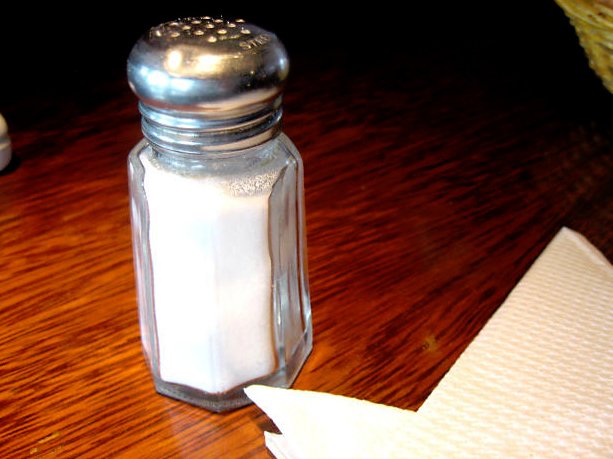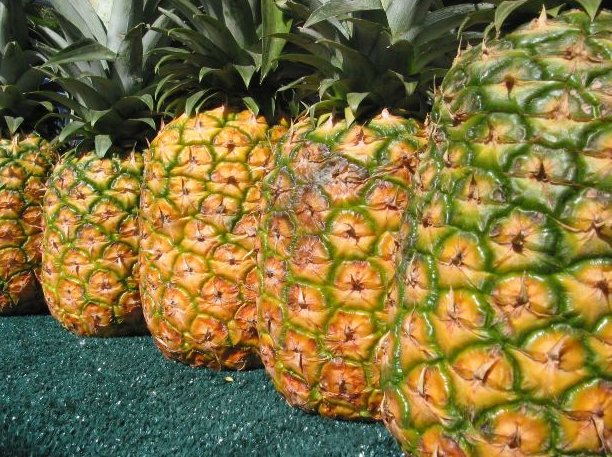 Right along with making sure you're getting a good vitamin intake, you also need to make sure you're looking at the mineral status of your diet.
Right along with making sure you're getting a good vitamin intake, you also need to make sure you're looking at the mineral status of your diet.
Getting the proper amounts of minerals will also be important, especially as far as promoting healthy bone development is concerned. Some people overlook the importance of minerals since they are so focused strictly on the fat, protein, and carb content of their diet.
By putting some concentration into the foods you're consuming with your diet though, you can make the most of your mineral intake while staying within your total calorie budget. Here are the 6 main minerals that you should be thinking about.
1 / Calcium
Calcium is one of the most known minerals that humans require on a daily basis and its main function is for forming and maintaining the bone tissue. Another key role that calcium will play which especially is important for those who are physical active is ensuring proper muscular contractions are taking place.
Where It's Found: The most concentrated sources of calcium include dairy products, with one cup of milk providing about 30% of your daily requirements. Other good sources of calcium include salmon, kale, broccoli, and sardines.
2 / Iodine
 Iodine is more commonly known as salt, and is also a very essential mineral since it plays a key role in maintaining a healthy thyroid gland and metabolic rate. Individuals who suffer from thyroid issues often struggle to maintain a favorable body composition since they are not burning as many calories on a daily basis.
Iodine is more commonly known as salt, and is also a very essential mineral since it plays a key role in maintaining a healthy thyroid gland and metabolic rate. Individuals who suffer from thyroid issues often struggle to maintain a favorable body composition since they are not burning as many calories on a daily basis.
Where It's Found: The primary source of iodine in the human diet is with table salt, but most people are actively cutting this out of their diet because in most instances, their salt intake is actually too high. Unless you are utilizing a very specific, very low salt diet, this is one mineral you typically do not need to worry about as you'll get in enough through the usual foods you contain.
3 / Iron
 Iron is a mineral that women especially need to be sure they're getting enough of since it plays a vital role in the transport of oxygen throughout the muscle tissues. Iron also helps support a good immune system and will work towards preventing anemia.
Iron is a mineral that women especially need to be sure they're getting enough of since it plays a vital role in the transport of oxygen throughout the muscle tissues. Iron also helps support a good immune system and will work towards preventing anemia.
Where It's Found: The best source of iron is actually found in soybeans, which contain almost 50% of your daily needs in one cup. Other good food sources of iron are lentils, spinach, tofu, beans, and lean beef.
4 / Magnesium
The next mineral that you must be sure you're focusing on is magnesium. Magnesium is important for helping to maintain proper muscle and nerve function in the body.
Magnesium is also important for your physical activity since it will aide with the development of energy in the body. Finally, magnesium is vital for a regular heartbeat, so it's one mineral that you need to ensure you're getting enough of.
Where It's Found: The best source of magnesium in the diet is actually pineapple, which is a fruit many individuals overlook. One cup will provide you with just over 76% of your total needs, so it's not hard to meet your requirements if you add this food to your menu. Other good sources of magnesium include rice, spinach, rye, soybeans, and oats.

The Best Source Of Magnesium In The Diet Is Pineapple.
5 / Zinc
One of the main roles that zinc will play in your diet is with regulating the regular development of new cells within the body, as it serves to help with the reading of the 'genetic blueprint' to guide this cell development. Zinc also promotes a good immune system and helps increase wound healing rates.
Where It's Found: Oysters are one of the best sources of zinc in the diet and contain over 500% of your daily value for six medium oysters. Other good sources include beef, crab, pork shoulder, fortified cereals, pork tenderloin, and cashews.
6 / Phosphorus
Finally, the last mineral that you should be sure you're including in your diet is phosphorus. This mineral is important for healthy formation of the bones and teeth and will also be important for repair of the cells and tissues within the body.
This mineral also works in conjunction with the B vitamins to maintain proper muscular contractions and keep the kidneys healthy.
Where It's Found: The best sources of phosphorus in the diet come from milk and meat sources, so for this reason, when you're taking in enough calcium and protein you will also be meeting your phosphorus needs as well since this nutrient will 'tag along' with these food sources.
Conclusion
Minerals are just as important to be taking in regularly through the diet as vitamins are, so it's critical that you're making wise decisions as far as your food selection goes.
